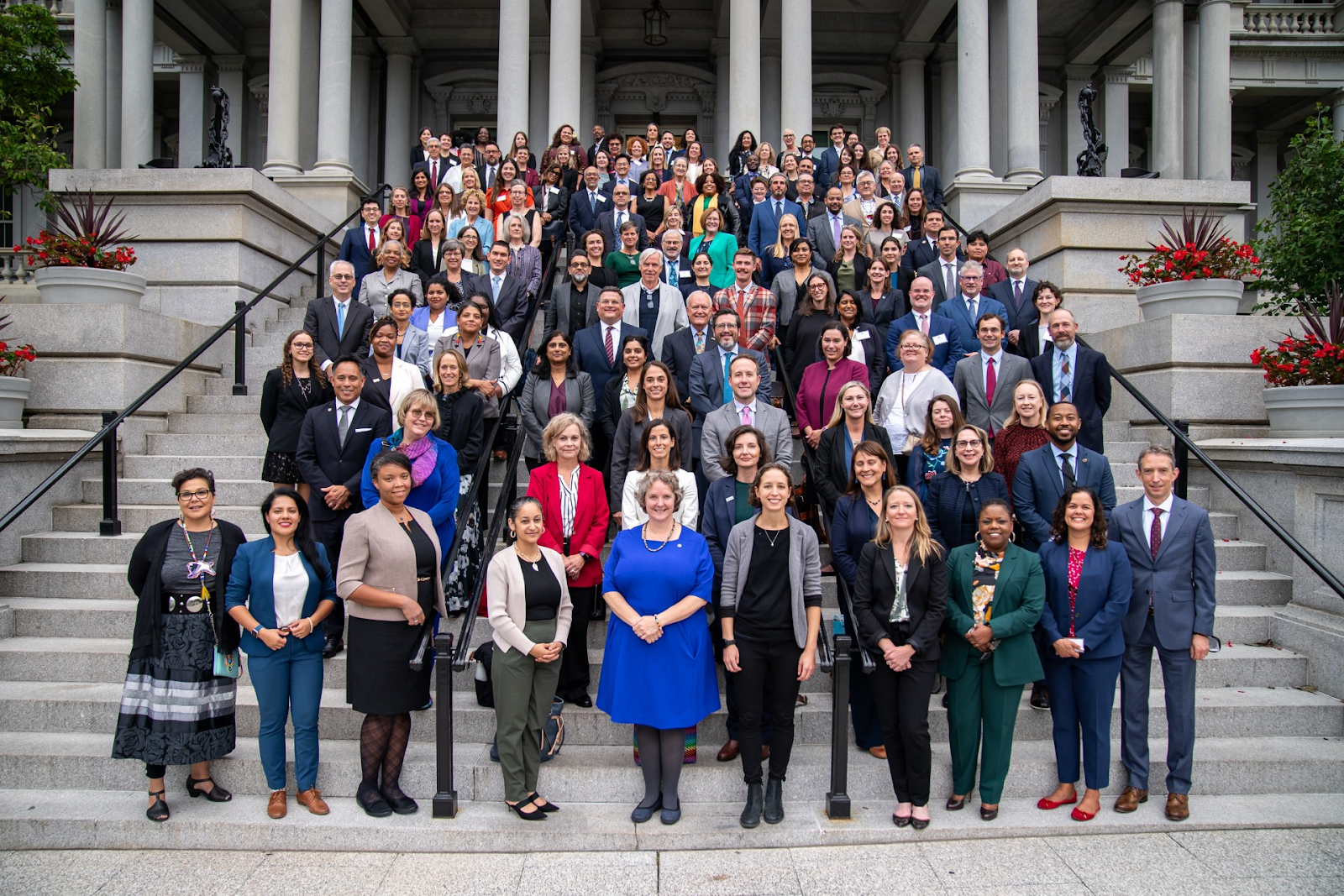Insights From the First-Ever White House Climate Resilience Summit
By: Dr. Lisa Patel, Executive Director

On September 28, 2023, the White House hosted its first-ever Summit on Building Climate Resilient Communities. The Medical Society Consortium on Climate and Health’s executive director, Dr. Lisa Patel, joined representatives from 25 states, territories, and Tribal Nations to discuss how to best mitigate climate change by reducing fossil pollution and nurturing and supporting locally-driven strategies that protect the physical and mental health of communities.
The day began with speeches from John Podesta, Senior Advisor to the President for Clean Energy Innovation, and Ali Zaidi, White House National Climate Advisor, who discussed worsening climate change as an opportunity for us to imagine a better future. Admiral Rachel Levine, Assistant Secretary for Health for the Department of Health and Human Services (HHS), and Jainey Bavishi, Deputy NOAA Administrator, dialogued about important initiatives like New York City’s Be a Buddy system during heat waves.
After opening speeches, participants broke up into six roundtable discussions. The Consortium joined the roundtable on growing and thriving communities, which focused on climate change, relocation, and health and community well-being in the face of growing climate threats. The discussion highlighted how many individuals and families lose their homes — either to a climate disaster or from being moved out of hazardous areas — only to find that they cannot afford to find replacement housing.
Families being relocated often suffer poorer medical care from fractured systems of health information when they move from one place to another. Post-disaster funds can also be difficult for families rebuilding homes or businesses to access. Through it all, ensuring social cohesion is maintained for communities that can be ripped apart by these types of disasters is essential to healing and rebuilding.
As we consider ways to maintain social cohesion, taking into account the essential services that our populations rely upon can help maintain places where community members go to receive medical care, be with other members of their community, or receive important emergency preparedness information. That is why health professionals through the Consortium are actively working to improve climate resilience in schools and clinics through education, advocacy, and policy initiatives that facilitate transitions to renewable forms of energy at these sites.
Transitioning to solar in our schools and clinics builds resilient power supplies when the grid is overtaxed and helps to mitigate fossil pollution. Both of these entities provide essential services to populations that will be more vulnerable to the effects of climate change and climate disasters, making them key sites for emergency preparedness and coordination.
Preparing our communities for the health harms of climate change also presents an important opportunity to re-envision and reinvigorate our systems to promote health. Health professionals will continue to serve a vital role in helping to understand the health harms while working closely with our federal, state, local, and community partners to co-create solutions that protect health and promote equity.
